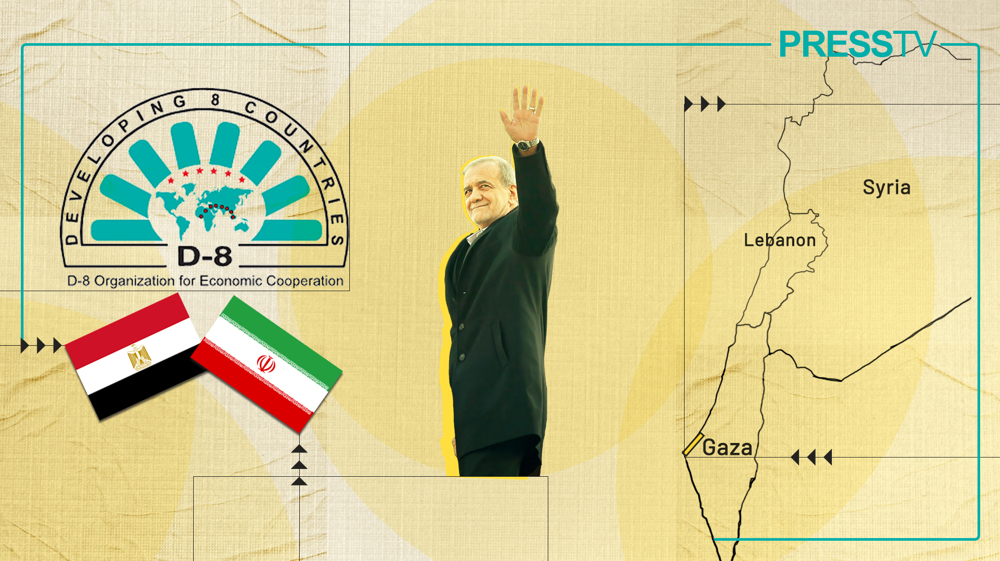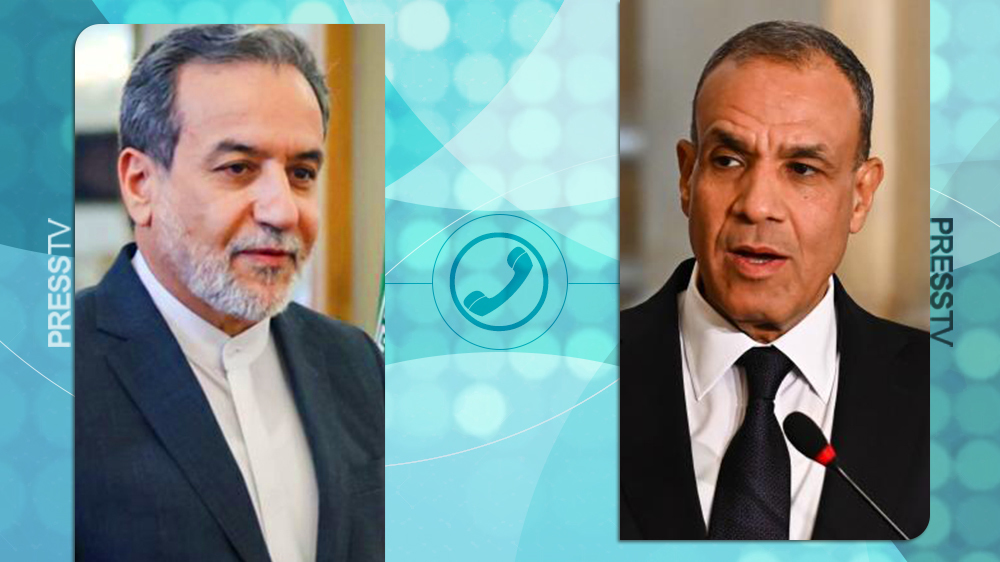Putin, Sisi sign deal on construction of Egypt's 1st nuclear power plant
Russian President Vladimir Putin and his Egyptian counterpart Abdel Fattah el-Sisi have signed a bilateral agreement on the construction of the first nuclear power plant in the North African country.
The two presidents agreed on Monday to build Egypt’s first nuclear power plant in the city of Dabaa, located on the Mediterranean coast and about 130 Kilometers northwest of the country’s capital Cairo.
The contract was signed by Alexei Likhachev, the head of Russian state nuclear company Rosatom, and Egypt's Electricity and Renewable Energy Minister Mohamed Shaker.
The plant, which is to house four 1,200-megawatt nuclear reactors, is due to be completed in 2022 and possibly generate power in 2024.
Egyptian media reports put the construction cost of Dabaa nuclear power plant at around 30 billion dollars.
The accord was initially signed in February 2015, but Moscow-Cairo relations were badly impacted after the horrific Russian passenger plane crash in Sinai in October that year, when all 224 people on board were killed.
The two leaders also agreed on resuming Russian flights to Egypt as soon as possible during their talks on Monday.

The Monday agreement was reached as the two presidents also discussed tensions in the Middle East following US President Donald Trump’s decision to recognize Jerusalem al-Quds as Israel’s “capital.”
Last week, Trump said Washington was recognizing Jerusalem al-Quds as Israel’s “capital” and tasked his officials with making preparations for transferring the embassy from Tel Aviv to the occupied city.
Trump’s announcement triggered harsh criticisms from the entire global community, including from Israel’s very own allies.
Speaking on state television during his visit to Egypt, Putin stressed the importance of "the immediate resumption of Palestinian-Israeli talks over all disputed issues, including the status of Jerusalem [al-Quds].”
"These agreements must be in harmony with previous decisions of the international community," the Russian president said, adding that "Russia fully supports previous Security Council resolutions.”
Putin added that any steps which would pre-empt a possible agreement between Israel and the Palestinians were "counterproductive and destabilizing."
The entire Jerusalem al-Quds is currently under Israel’s control, while the regime also claims the city’s eastern part, which hosts al-Aqsa Mosque, the third holiest Muslim site.
The city has been designated as “occupied” under international law since the 1967 Arab War. Palestinians want the city as the capital of their future state.
Trump had vowed during his presidential campaign that he would relocate the US embassy in order to court pro-Israel voters.
Palestinians have repeatedly warned Trump against such an action, saying it would deliver a death blow to any prospects of the resolution of the Palestinian-Israeli conflict and fuel extremism in the region.
Putin to discuss Syrian peace process with Erdogan
Meanwhile, the Russian leader is due to fly to Turkey after his visit to Egypt.
Kremlin spokesman Dmitry Peskov announced that Putin and his Turkish counterpart Recep Tayyip Erdogan would discuss a possible political resolution to the Syrian crisis when they meet.
Peskov said the two leaders would also negotiate preparatory measures for the work of a proposed National Dialogue Congress that aims to bring together the Syrian government and the opposition.
The plan had been announced by Russia after the latest peace talks on Syria, which were also backed by Turkey and Iran, in the Kazakh capital, Astana.
Kazakhstan’s capital has hosted several rounds of peace talks on Syria since January.
Iran, Russia and Turkey, which serve as guarantor states of a ceasefire that took effect in Syria late last year, agreed on setting up four de-escalation zones in Syria’s militant-held northwestern province of Idlib, the central province of Homs and the Eastern Ghouta area outside of the capital Damascus.
The talks in Astana have been going on in tandem with another series of talks held in Geneva and brokered by the UN.
Since 2011, Syria has been experiencing a deadly conflict the government in Damascus blames on foreign sponsors of terrorism.
VIDEO | Australians rally for Gaza ahead of Christmas festivities
VIDEO | Attacks on Sana'a
Iran reports further drop in annual inflation rate in December
Israel indicts two settlers over suspected spying for Hezbollah
Iran: US airstrikes on Yemen war crimes, violation of international law
Yemeni armed forces down F-18 fighter jet, repel US-UK attack: Spokesman
Iran warns against US-Israeli plot to weaken Muslims, dominate region
VIDEO | Public uproar in US against Israeli regime









 This makes it easy to access the Press TV website
This makes it easy to access the Press TV website